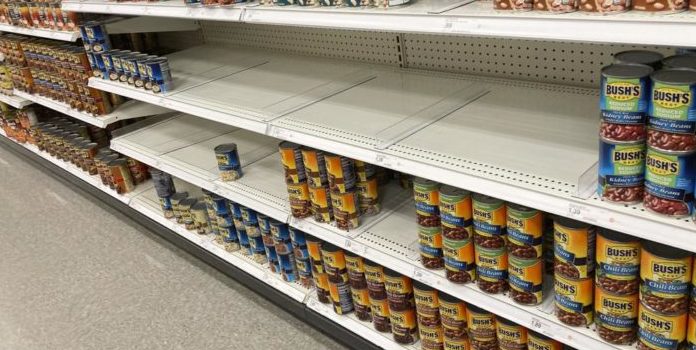(Eli Pacheco, Headline USA) Reduced retail options from COVID-19-era lockdowns don’t seem to be going anywhere post-pandemic, according to a Wall Street Journal report.
Many consumers don’t mind—or, perhaps, didn’t notice. Coca-Cola offers half of the options it did before lockdowns. Companies, such as Newell Products, made these changes to ease supply-chain woes related to coronavirus.
“I don’t think any consumer would have noticed we went from 200 to 150” labels of Yankee Candle, Chris Peterson, chief executive of Newell Brands, told the Wall Street Journal.
Consumer spikes in spending and product shortages forced manufacturers to streamline in 2020 and 2021. But with logistics free of those restrictions, many businesses today are keeping the stock-keeping unit counts low and banking on basic favorites.
“Today, people would rather lose a portion of consumer demand as opposed to spending extra on too much variety,” said Inna Kuznetsova, CEO at ToolsGroup, which specializes in supply-chain planning and optimization.
The data support Kuznetsova’s assessment and suggest that the problems that began with the pandemic supply-chain issues are spilling over into a waning consumer demand as the result of heightened Biden-era inflation.
Market research firm Circana reported that of all retail products in 2023, new items made up 2% of inventory, down 3% from 2019, said the Wall Street Journal.
This included:
- Beauty products
- Footwear
- Toys
Shelf Engine, a tech firm that automates grocery retailer orders, revealed that fresh-food choices were down 15-20%.
This included:
- Dairy products
- Deli meats
- Fruit
Before the pandemic, big grocery chains stocked shelves with as many items as possible to retain customers from the competition. Today, those companies save on costs because they have a smaller catalog to manage. Fewer options can also help cut down on food waste.
From the executive level, thinner product lines can mean a boost to profitability.
With interest rates and raw material costs on the rise, the price of manufacturing is an issue.
Small businesses suffer most from the change, as they struggle to keep products on shelves in stores that are winnowing their offerings to big-brand items.
And brands can’t diversify their offerings as easily as they did before, said Seth Goldman, founder of organic beverage maker Honest Tea.
“There has been less innovation since the pandemic,” Goldman said to the Journal. Coca-Cola bought Honest Tea in 2011 and shut it down in 2022.
For Nick Jensen, vice president of product for furniture retailer Malouf, the supply chain issues gave businesses the chance to test ways to enhance productivity—and how viable reducing product lines could be.
“It was quite shocking as we parsed it out to see we were using a lot of our buying power to really not get much of a return on investment,” Jensen told the Journal.

